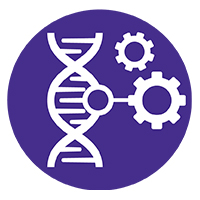Back
Advances in Therapeutic Development Across Modalities
Session: Rapid Fire: Innovation Based on Traditional Approaches
Modeling Strategy to Guide the Development of Targeted Bispecific Antibody
Wednesday, April 26, 2023
2:30 PM – 2:45 PM ET
Location: Salon D, 5th Floor

Kazi Tasneem, PhD
Senior Scientist
Genentech - South San Francisco, CA
San Mateo, California, United States
Rapid Fire Speaker(s)
Targeted bispecific antibodies (BsAbs) in oncology are designed to bind two different antigens by two arms: therapeutic arm and tumor targeting arm. Therapeutic arm binds to target that inhibits tumor growth and tumor targeting arm binds to antigen predominantly expressed on cancer or cancer associated cells, leading to minimizing systemic toxicity. To predict such tumor engagement by targeted BsAbs, a minimal PBPK model was developed using typical monoclonal antibody PK parameters. The modeling goal is to predict in-tumor target occupancy, optimum target affinities, and efficacious doses. Model suggests that therapeutic arm with nanomolar affinity will be favorable for optimum efficacy with minimum TMDD. Model also predicts that higher expression of tumor antigen and sub-nanomolar to nanomolar affinity of tumor targeting arm will enhance efficacy. In future, this preliminary PBPK model will be calibrated for specific therapeutic targets and tumor target antigens to guide the development of targeted BsAbs.
Learning Objectives:
- Upon completion, participants will be able to identify the major applicability of targeted bispecific antibody in oncology.
- Upon completion, participants will be able to define the key factors affecting the efficacy of the targeted bispecific antibody in oncology.
- Upon completion, participants will be able to assess the key aspects and the parameters needed for developing a targeted bispecific antibody in oncology.

